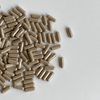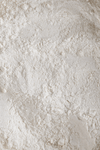Do you reach for a mixture of vitamin C, ibuprofen and cough drops at the slightest hint of a sore throat or fever?
If so, you are not alone: most people try to avoid getting sick at all costs!
While this strategy may provide temporary relief, immunity goes much further than just a band-aid solution.
And that means it's so easy to avoid the scenario described above by strengthening your immune system every day.
How, you ask? Let's start by looking at the benefits of an animal-based diet.
Animal products, such as meat, milk, eggs, fish and seafood, are rich in important nutrients for your immune system and have a variety of health benefits.
Here are some of the most important benefits of animal products.
-
Protein: Animal products are an important source of protein and contribute to muscle building and tissue repair.
-
Iron: Animal products, especially beef liver, are an important source of iron, which is important for blood formation and the oxygen supply to cells.
-
Vitamin B12: Animal products, especially liver and fish, are an important source of vitamin B12, which is important for the production of red blood cells and for supporting the nervous system.
-
Vitamin D: Milk and dairy products as well as fish are an important source of vitamin D, which is important for maintaining a healthy bone structure and supporting the immune system.
-
Omega-3 fatty acids: Fish is an important source of omega-3.
-
Calcium: Milk and dairy products are an important source of calcium, which is important for the health of bones and teeth.
-
Zinc: Meat, offal and fish are a good source of zinc, which is important for wound healing, the immune system and cell division.
-
Vitamin A: Offal such as beef liver is an important source of vitamin A, which is important for eye health and mucous membranes.
-
Vitamin K2: Offal such as beef liver is an important source of vitamin K2, which supports bone health and the cardiovascular system.
-
Co-enzyme Q10: Offal such as beef liver is an important source of co-enzyme Q10, an antioxidant that protects cells from free radical damage and supports heart health.
-
Choline: Offal such as beef liver is an important source of choline, a nutrient that is important for brain health and memory function.
-
Copper: Meat and offal are a good source of copper, which is important for the production of red blood cells and supporting the immune system.
-
Folic acid: Offal such as beef liver is an important source of folic acid, which is important for cell division and blood formation.
-
Natural: Animal products are natural foods and often contain a greater variety of nutrients than synthetically produced supplements.
- Taste: Animal products have a unique taste and can be a welcome change in the diet.
However, it is also important to include plant-based foods in your diet, as a balanced diet is the key to good health.
The more you get to grips with animal nutrition, the quicker you realize that the offal, or organ meat, of an animal also plays an important role. To better understand this role, let's take a look at the history of the use of organ meat to strengthen the immune system.
Before our current era of antibiotics and immunology, those who wanted to strengthen their body's natural defenses didn't have much to rely on.
Ancient civilizations probably didn't even know they had an immune system - but they were still able to strengthen it by relying on nature.
A perfect example of this is the work of Weston A. Price. Modern science has only recently proven that children who are breastfed have stronger immune systems than children who are not, but that hasn't stopped traditional cultures from recognizing the importance of breastfeeding itself.
Price's studies also showed that the diet of traditional cultures contained 5-10 times more vitamins and minerals than the processed food of "civilized" cultures. These additional nutrients protected against the most threatening diseases of that generation, including tuberculosis.
Of course, the traditional cultures also received plenty of sunlight - another practice that has only recently been scientifically confirmed. "Recent epidemiological findings indicate a significant link between vitamin D deficiency and an increased incidence of various infectious diseases," confirms a study from 2015.
So how did the cultures of earlier times use organ meat?
In pretty much every conceivable way. They literally nourished themselves from nose to tail and valued beef liver the most, preferring to give this particular organ to nursing women, children, the sick and the elderly.
Finally, it was recognized that the flesh of a certain organ gives vitality to the same organ in us humans, which gives a whole new meaning to the saying "You are what you eat". This refers to organs such as the liver, spleen, thyroid gland, thymus and bone marrow.
In the 1930s, scientists discovered that bovine spleen was so effective that it could increase white blood cell (WBC) counts. In Germany, a spleen extract called Splenin is still used in some treatment protocols today.
As great as the above benefits are, they are just the beginning. Many beef organs contain immune-boosting peptides that strengthen our respective organs.
The bovine thymus gland is rich in thymosin peptides and the thymic humoral factor. Both can send important signals to the thymus gland.
The rare nutrients in bone marrow also make it an excellent immunity booster. Researchers have discovered that it is rich in a special fatty acid, alklyglycerol, which is both cytoprotective and immunoregulatory.
(Cytoprotective means "protecting the cell")
In addition to the nutrients that support the immune system, the absence of harmful substances in organ meats also plays an important role. Compared to other foods, almost all organ meats contain only very small amounts of polyunsaturated omega-6 fatty acids.
Why is this important? According to endocrinologist Ray Peat, unsaturated oils weaken the function of the immune system in a similar way to radiation, hormonal imbalances, cancer, ageing or viral infections.
Polyunsaturated fatty acids (PUFAs) can even damage the extremely important thymus gland: "Immunodeficiency, which is largely caused by damage to the thymus cells, increases when large amounts of PUFA are consumed over a longer period of time."
So when it comes to boosting the health of the immune system in a natural way, organ meat is a real superfood.
Using organ meats is safe, simple and effective. Supporting your immune system is easy if you follow the principle of "like supports like" - beef liver can support your own liver, beef spleen can support the immunity of your own spleen, etc. Consider eating a wide variety of organ meats each week or supplementing with organ supplements to boost your immune system.
And don't worry if you can't find a reliable source of fresh, grass-fed beef. At Animalbased.co.uk, we do our best to meet and exceed standards.
And last but not least, our organ preparations are absolutely free from harmful additives. Our raw organ production process uses rapid freeze-drying to preserve the vitamins, enzymes and minerals in the raw bovine organs.
This is quality that the whole family can trust.
Links:
https://www.jacionline.org/article/S0091-6749%2814%2901274-3/fulltext
https://www.westonaprice.org/health-topics/food-features/bone-marrow/#gsc.tab=0
http://raypeat.com/articles/articles/meat-physiology-stress.shtml
https://www.innate-nutrition.com/blog/polyunsaturated-fatty-acids-suppress-the-immune-system









